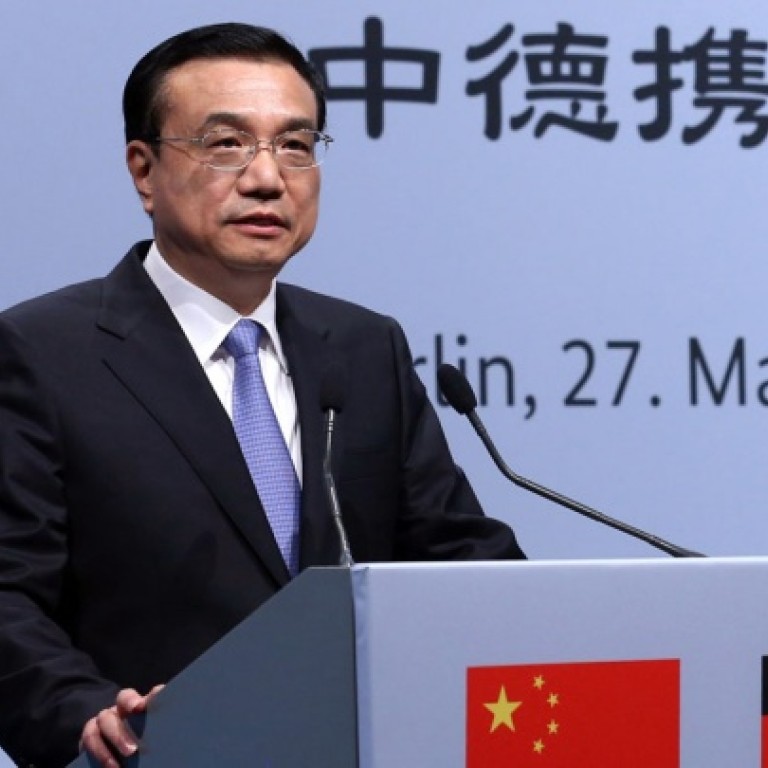
China enlists EU states to counter Brussels on tariffs
Beijing counters European Commission's tough trade tactics by setting EU states against it and wooing European states outside 27-nation bloc
China, dismayed at the tougher stance Brussels is taking in trade disputes, is seeking to put pressure on the European Commission by engaging EU member states and strengthening trade ties with non-EU European countries, analysts say.
The tactic was manifested during Premier Li Keqiang's recent visits to Switzerland and Germany, which is opposing a proposal for tariffs on imports of Chinese solar panels. Li returned to Beijing yesterday.
Li's trip came after the EC, the 27-nation bloc's executive arm, accused China of pricing its solar panels too cheaply and proposed the imposition of a 47 per cent tariff on such products by June 5. China is banking on Germany to lead opposition to the proposal, which is reportedly opposed by more than half of the EU's 27 members.
"China is trying to benefit from Europe's internal divisions," said Jonathan Holslag, head of research at the Brussels Institute of Contemporary China Studies, adding that China had deepened ties with southern and eastern Europe during the euro- zone crisis.
"The main aim is to keep the export channels open and to prevent member states swinging behind a more assertive European Commission."
On Monday, the EC warned against "pressure being exerted by China on a number of EU member states".
"It is the role of the European Commission to remain independent, to resist any external pressure and to see the 'big picture' for the benefit of Europe, its companies and workers based upon the evidence alone," said John Clancy, spokesman for EU Trade Commissioner Karel De Gucht.
China has also stepped up its involvement with non-EU states. It is expected to sign a free trade agreement (FTA) with Switzerland in July, following the signing of its first European FTA with Iceland this year. On Monday, the Ministry of Commerce said negotiations for a similar deal with Norway had entered the "final stage" - after stalling for more than two years over the Nobel Peace Prize awarded to dissident Liu Xiaobo .
Feng Zhongping , director of European studies at the China Institute of Contemporary International Relations, said China was forging ties with non-EU nations because of difficulties over a free trade deal with the EU.
"China is telling Europe that the Chinese economy is open by having trade agreements with non-EU states," he said.
Last year, China and 16 central and eastern European countries, many of them EU members, agreed to set up a secretariat for co-operation. China also pledged a US$10 billion loan and another US$500 million was designated for an investment fund.
"China believes that smooth ties with Germany and France can guarantee a stable Sino-European relationship," said Zhao Junjie, a European studies specialist at the Chinese Academy of Social Sciences. "But China also interacts with marginalised European nations. By pouring in aid and grants, Beijing hopes these nations will not resort to an anti-China stance."
Francois Godement, head of the China programme at the European Council on Foreign Relations, said Germany had rejected the tariff proposal because China could "take tough action against German businesses" such as carmakers. But he said whether the EU would drop the proposal remained to be seen.
"There are occasions that member states have said something, but the end result is a different thing," he said.
Zhao said China and the EU expected the other side to blink.
"Europe does not have many alternatives, and it will feel the heat if China adopts counter measures," he said.

